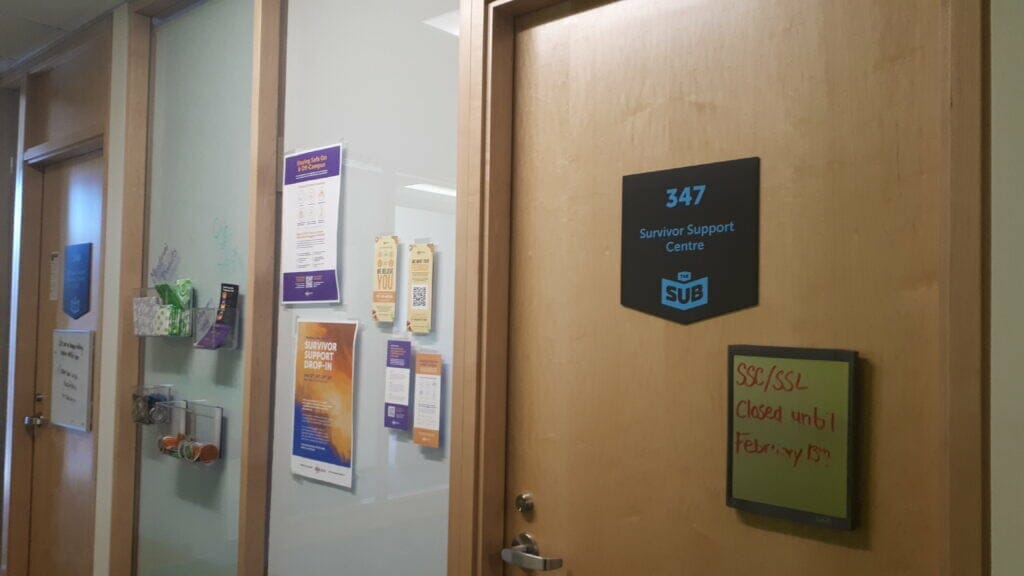
DSU creates bursary for students who have experienced sexualized violence
Funds available to all students who need financial support in healing
The Dalhousie Student Union Survivor Support Centre has created a bursary for students who have experienced sexualized or gender-based violence.
All members of the DSU — any Dalhousie University Student — are eligible to apply for the bursary. However, preference is given to students who have already accessed resources from the Survivor Support Centre or the university’s human rights and equity services, as well as members of marginalized groups.
“Our support manager has a lot of intake of students dealing with personal issues and trauma. [While] talking to someone about [living with trauma] and having someone support you emotionally gives you a perspective on how to heal … there is often a financial barrier when it comes to finding one’s own healing,” Tammy Maniou, the DSU’s internal vice-president, said in an interview on Jan. 20.
According to a report published by the Canadian Federation of Students (CFS), roughly one in four students have reported experiencing sexual violence while studying at university. In that same report, CFS states that the number is likely much higher since “only one in 10 incidents end up being reported.” Nine in 10 reported violence cases are against women, with half of all incidents occurring between the ages of 15 and 24.
Emma Kuzmyk is the program coordinator for Action Now Atlantic, an organization that works to reduce sexual violence on campuses in the Atlantic region. She said in a statement to the Dalhousie Gazette that her organization sees the bursary as an excellent opportunity to support survivors of sexual violence since it helps alleviate financial barriers to care.
“We hope that this bursary will continue to complement existing services and supports, and that universities as a whole dedicate more resources and funding to existing services. As well as working to establish new services and bursaries like this one in consultation with students, survivors, and sexual and gender-based violence experts,” the statement continued.

Bursary details
The bursary offers $750 to successful applicants to be used how they see fit, although the DSU does require applicants to outline how they intend to use the money. It does not ask applicants to disclose any incidents of violence to qualify for the money.
In addition, according to the DSU website, applicants must also include receipts or quotes, plus documents to use in consideration of need, such as student loan documents or medical costs. A personal statement is also required.
This bursary is “ad hoc,” meaning it is only available for the 2023 winter term. According to Maniou, this bursary came around after the manager of the survivor support centre found that they had excess funds in their budget.
However, the bursary has a funding cap, with only $9,000 available to students. Maniou said that if the DSU had unlimited funds, she “would love” to see this funding and all other ad hoc bursaries become things they can offer yearly.
Applications for the Survivor Support Bursary opened on Dec. 14 and will be available through the winter semester. Maniou guaranteed successful applicants will receive their money by the end of the winter term.






